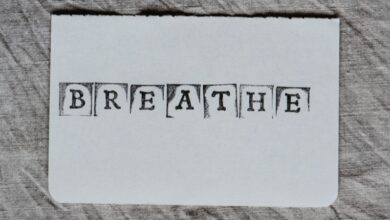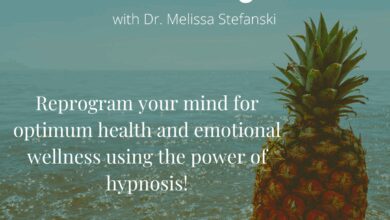Understanding chronic tiredness a complete guide

Do you feel like you’re constantly running on empty? Like you need a vacation from your life, even when you are on vacation? You’re not alone. Chronic tiredness is a widespread problem, affecting millions of people. It’s more than just feeling sleepy after a long day; it’s a persistent, debilitating exhaustion that interferes with daily life. Maybe it’s dragging you down at work, making it hard to enjoy time with family, or simply stealing your joy. For years, I struggled with this myself, constantly reaching for another cup of coffee just to get through the afternoon. I tried everything – more sleep (which didn’t always help!), endless to-do lists, and pushing myself harder. But I learned that true energy isn’t about doing more, it’s about being more in tune with your body and finding sustainable ways to recharge. This guide will explore the root causes of chronic tiredness and, more importantly, provide you with practical, natural remedies for fatigue that you can start implementing today. We’ll cover everything from dietary changes to lifestyle adjustments and simple techniques to boost your energy levels naturally.
Key Takeaways
- Chronic fatigue isn’t just about being tired; it’s a persistent exhaustion that impacts daily life.
- Many factors can contribute to fatigue, including diet, stress, sleep quality, and underlying health conditions.
- Simple dietary changes, like focusing on whole foods and staying hydrated, can significantly boost energy.
- Stress management techniques, such as mindfulness and deep breathing, are crucial for combating fatigue.
- Regular, moderate exercise can actually increase energy levels, despite feeling counterintuitive.
- Certain vitamin and mineral deficiencies can contribute to fatigue, and addressing them can be helpful.
- Prioritizing sleep hygiene and creating a relaxing bedtime routine are essential for restorative sleep.
Understanding Chronic Tiredness: What’s Going On?
Chronic tiredness isn’t a diagnosis in itself, but rather a symptom of something else. It’s your body’s way of saying it’s overwhelmed and needs attention. There are a lot of potential culprits. Sometimes it’s a medical condition like anemia, thyroid issues, or sleep apnea. Other times, it’s lifestyle factors like poor diet, chronic stress, or lack of physical activity. Even emotional issues like depression and anxiety can manifest as physical fatigue. It’s important to rule out any underlying medical conditions by talking to your doctor, especially if your fatigue is sudden, severe, or accompanied by other concerning symptoms. But often, the answer lies in making some simple, yet powerful, changes to your daily routine. Consider keeping a fatigue diary for a week or two, noting what you eat, how you sleep, your stress levels, and when you feel most tired. This can help you identify patterns and potential triggers.
The Power of Diet: Fueling Your Energy
What you eat has a huge impact on your energy levels. Think of food as fuel for your body. Would you put low-quality gasoline in a high-performance car? Probably not! Similarly, processed foods, sugary drinks, and excessive caffeine can lead to energy crashes and contribute to chronic fatigue. Focus on a diet rich in whole, unprocessed foods like fruits, vegetables, lean protein, and whole grains. These provide sustained energy and essential nutrients. Specifically, iron-rich foods like spinach and lentils can combat fatigue caused by iron deficiency. Don’t underestimate the importance of hydration! Dehydration can lead to fatigue, headaches, and decreased cognitive function. Aim to drink at least eight glasses of water a day. Consider incorporating foods known for their energy-boosting properties, like bananas (potassium), oats (complex carbohydrates), and nuts and seeds (healthy fats).
Stress Management: Calming the Chaos
Chronic stress is a major energy drain. When you’re stressed, your body releases cortisol, a hormone that can disrupt sleep, suppress the immune system, and leave you feeling exhausted. Learning to manage stress is crucial for combating fatigue. There are many effective stress management techniques to explore. Mindfulness meditation, even just for 5-10 minutes a day, can help you calm your mind and reduce stress. Deep breathing exercises are another simple yet powerful tool. Yoga and tai chi combine physical activity with mindfulness, offering a double dose of stress relief. Spending time in nature, listening to music, or engaging in hobbies you enjoy can also help you de-stress and recharge. Don’t be afraid to set boundaries and say “no” to commitments that overwhelm you.
Move Your Body: Exercise for Energy
It might seem counterintuitive, but regular exercise can actually increase your energy levels. When you exercise, your body releases endorphins, which have mood-boosting and energizing effects. Exercise also improves sleep quality and strengthens your cardiovascular system, making it easier for your body to deliver oxygen and nutrients to your cells. You don’t need to run a marathon to reap the benefits. Even moderate exercise, like a 30-minute walk, can make a big difference. Find an activity you enjoy, whether it’s dancing, swimming, hiking, or cycling, and make it a regular part of your routine. Start slowly and gradually increase the intensity and duration of your workouts. Listen to your body and rest when you need to.
Sleep Hygiene: Rest and Recharge
Quality sleep is essential for restoring energy. But many of us struggle with sleep, whether it’s falling asleep, staying asleep, or waking up feeling refreshed. Improving your sleep hygiene can make a significant difference. Create a relaxing bedtime routine, such as taking a warm bath, reading a book, or listening to calming music. Make sure your bedroom is dark, quiet, and cool. Avoid caffeine and alcohol before bed. Establish a regular sleep schedule, going to bed and waking up around the same time each day, even on weekends. Limit screen time (phones, tablets, computers) in the hour before bed, as the blue light emitted from these devices can interfere with sleep.
Vitamins and Minerals: Filling the Gaps
Sometimes, fatigue is caused by a vitamin or mineral deficiency. Iron, vitamin D, vitamin B12, and magnesium are all essential for energy production. If you suspect you might be deficient in one or more of these nutrients, talk to your doctor about getting a blood test. They can recommend appropriate supplementation if needed. However, it’s important to note that taking supplements without knowing if you’re deficient can be harmful. Focus on getting your nutrients from whole foods whenever possible. For example, fatty fish like salmon are a good source of vitamin D, while leafy green vegetables are rich in magnesium.
Adaptogens: Nature’s Stress Busters
Adaptogens are a class of herbs that help your body adapt to stress. They’ve been used for centuries in traditional medicine to boost energy, improve mental clarity, and enhance overall well-being. Some popular adaptogens include ashwagandha, rhodiola, and ginseng. These can help regulate cortisol levels and improve your body’s resilience to stress. However, it’s important to talk to your doctor before taking adaptogens, especially if you have any underlying health conditions or are taking medications. They can interact with certain medications and may not be suitable for everyone.
Hydration Hacks: Beyond Water
While drinking enough water is paramount, there are ways to boost your hydration and energy levels further. Herbal teas, like ginger or peppermint, can be incredibly refreshing and provide a gentle energy lift. Electrolyte-rich drinks, especially after exercise, can help replenish lost fluids and minerals. Eating water-rich fruits and vegetables, like watermelon, cucumbers, and celery, also contributes to your daily hydration. Pay attention to your body’s signals – thirst is often a sign that you’re already mildly dehydrated.
Mindful Moments: Short Bursts of Calm
You don’t need hours for meditation. Incorporating mindful moments throughout your day can significantly reduce stress and boost energy. Take a few deep breaths before starting a challenging task. Practice mindful eating, savoring each bite of your food. Take a short walk and pay attention to your surroundings. These small moments of calm can help you recharge and stay grounded. There are many free guided meditation apps available that can help you get started.
The Importance of Routine: Creating Structure
A consistent daily routine can do wonders for your energy levels. When you have a predictable schedule, your body knows what to expect, which can reduce stress and improve sleep. Set specific times for waking up, eating meals, exercising, and going to bed. Schedule regular breaks throughout the day to avoid burnout. Even small changes to your routine can make a big difference.
Listen to Your Body: Rest When You Need To
This might sound obvious, but it’s often the hardest thing to do. We live in a culture that glorifies busyness and often equates rest with laziness. But rest is essential for restoring energy and preventing burnout. Pay attention to your body’s signals. If you’re feeling tired, take a break. Don’t push yourself to do more than you can handle. Prioritize self-care and make time for activities that you enjoy. Learning to say “no” is a powerful act of self-care.
Addressing Emotional Wellbeing: The Mind-Body Connection
Fatigue can often be linked to underlying emotional issues like depression, anxiety, or unresolved trauma. Addressing your emotional wellbeing is crucial for combating chronic tiredness. Consider talking to a therapist or counselor. Journaling can be a helpful way to process your emotions. Engage in activities that bring you joy and fulfillment. Cultivate positive relationships and surround yourself with supportive people.
Sunlight and Fresh Air: Natural Boosters
Spending time outdoors can significantly boost your energy levels. Sunlight helps your body produce vitamin D, which is essential for energy production. Fresh air improves oxygen levels in your blood, which can also increase energy. Aim to spend at least 15-20 minutes outdoors each day, especially in the morning. Open your windows to let fresh air circulate in your home.
Gradual Changes: Small Steps, Big Results
Don’t try to overhaul your entire lifestyle overnight. That’s a recipe for overwhelm and burnout. Instead, focus on making small, gradual changes. Start with one or two of the remedies mentioned above and gradually incorporate more as you feel comfortable. Consistency is key. Even small changes, when done consistently, can have a significant impact on your energy levels.
FAQs
Q: How can I tell if my fatigue is something serious?
A: If your fatigue is sudden, severe, or accompanied by other concerning symptoms like fever, weight loss, or changes in bowel habits, it’s important to see a doctor to rule out any underlying medical conditions.
Q: What’s the best time of day to exercise when I’m feeling tired?
A: While it might seem counterintuitive, even a short walk in the morning can be incredibly energizing. Listen to your body and choose a time that works best for you.
Q: Are energy drinks a good solution for fatigue?
A: No, energy drinks typically provide a temporary boost followed by a crash. They can also disrupt sleep and contribute to anxiety. Focus on natural remedies for fatigue instead.
Q: How long does it take to see results from these natural remedies?
A: It varies from person to person. Some people experience improvements within a few days, while others may take several weeks. Consistency is key.
Q: Can stress really cause that much fatigue?
A: Absolutely. Chronic stress depletes your energy reserves and disrupts your body’s natural rhythms. Managing stress is crucial for combating fatigue.
I hope this guide has given you some helpful insights and practical strategies for overcoming chronic tiredness. Remember, you deserve to feel energized and vibrant. Start small, be patient with yourself, and prioritize your wellbeing. You’ve got this! I’d love to hear about your experiences and what strategies work best for you. Please share your thoughts in the comments below, and feel free to share this article with anyone who might benefit from it.
Hi, I’m Sophia! Welcome to my blog Try Stress Management (trystressmanagement.com), where I share simple, down-to-earth ways to handle stress and bring more calm into everyday life. Think of me as your friendly guide, offering practical tips, reflections, and little reminders that we’re all figuring this out together.
When I’m not blogging, you’ll usually find me with a good book, sipping tea, or exploring new walking trails. I believe small changes can make a big difference—and that a calmer, happier life is possible for everyone.




